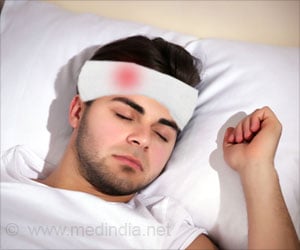Wearing blue-light-filtering glasses is an effective intervention to improve sleep, work engagement, task performance, and reduce counterproductive work behavior, said new study.

‘Wearing blue-light-filtering glasses is an effective intervention to improve sleep, work engagement, task performance, organizational citizenship behavior, and reduce counterproductive work behavior.’





"In general, the effects of wearing blue-light-filtering glasses were stronger for 'night owls' than for 'morning larks,'” said Cristiano L. Guarana, assistant professor of management and entrepreneurship at the Indiana University Kelley School of Business, who previously has studied how lack of sleep affects business decisions, relationships and other behaviors in organizations. "Owls tend to have sleep periods later in the day, whereas larks tend to have sleep periods early in the day. "Although most of us can benefit from reducing our exposure to blue light, owl employees seem to benefit more because they encounter greater misalignments between their internal clock and the externally controlled work time. Our model highlights how and when wearing blue-light-filtering glasses can help employees to live and work better."
Daily engagement and performance of tasks may be related to more underlying biological processes, such as the circadian process.
"Our research pushes the chronotype literature to consider the relationship between the timing of circadian processes and employees' performance," the researchers wrote.
"This study provides evidence of a very cost-effective means of improving employee sleep and work outcomes, and the implied return on investment is gigantic," said Barnes, professor of management and the Evert McCabe Endowed Fellow at the University of Washington's Foster School of Business. "I personally do not know of any other interventions that would be that powerful at that low of a cost."
Advertisement
The study participants were randomly chosen to test glasses that filter blue light or placebo glasses.
Advertisement
Exposure to blue light is the viable first step for organizations to protect their employees' circadian cycles from disruption.
Source-Medindia















